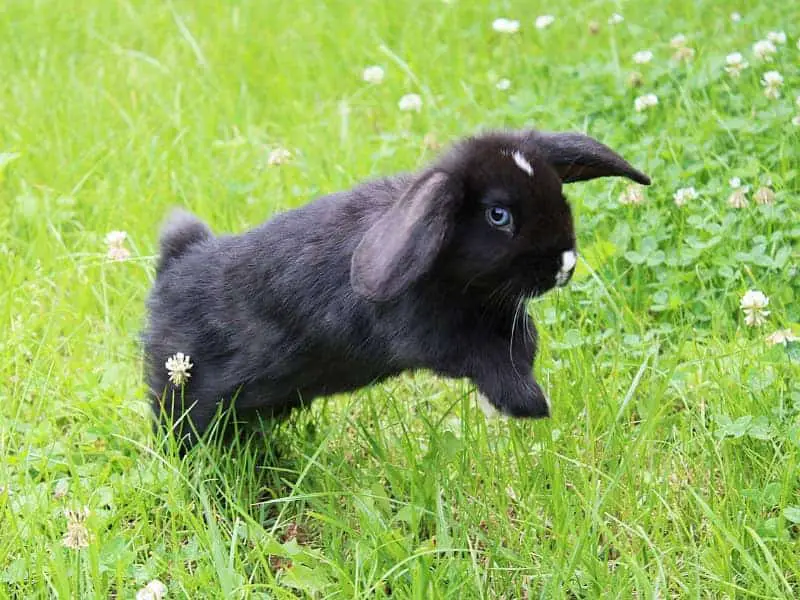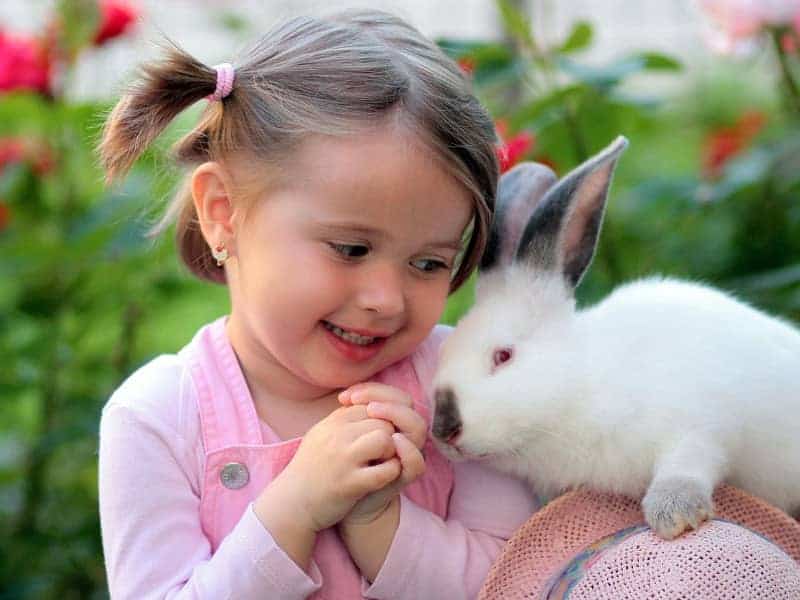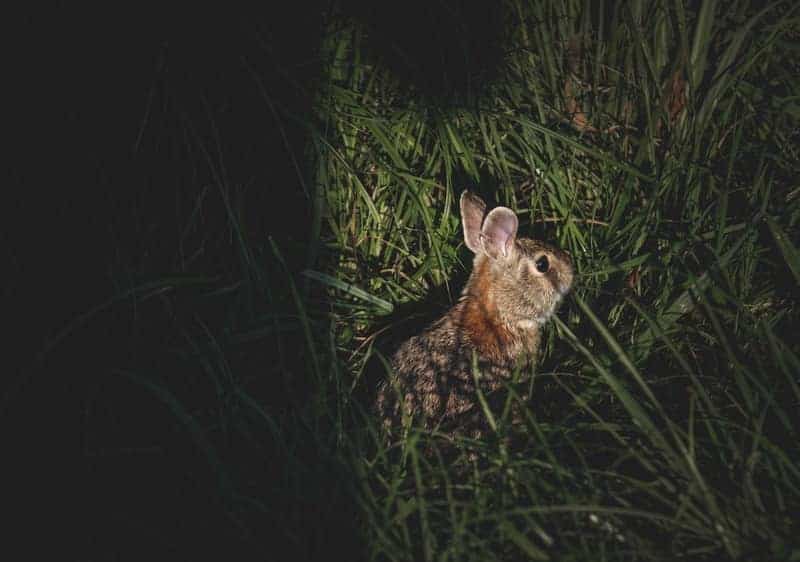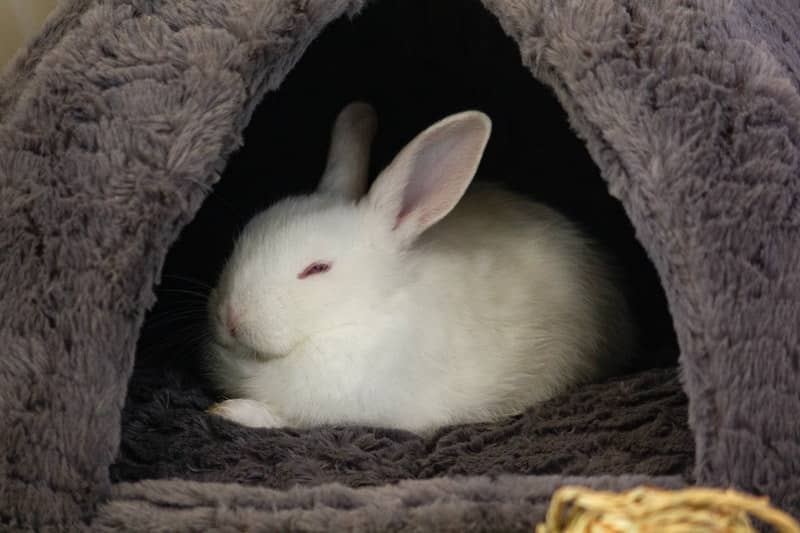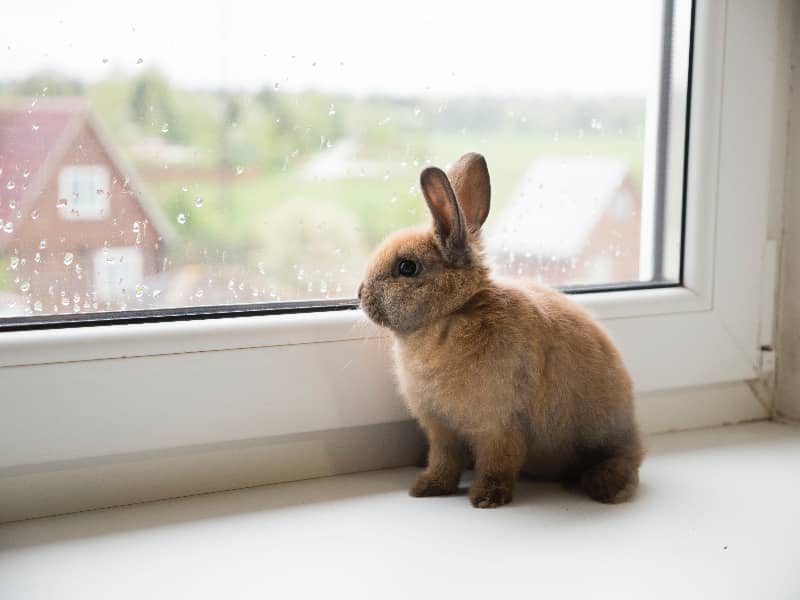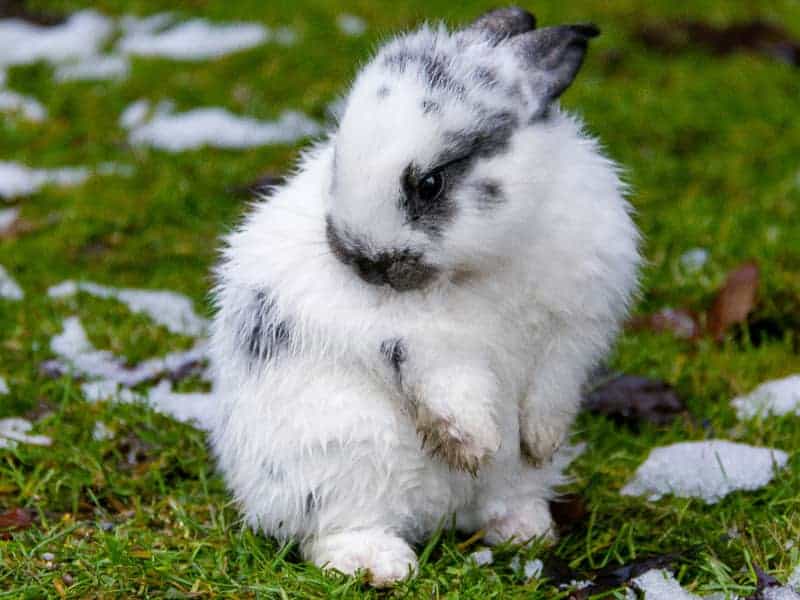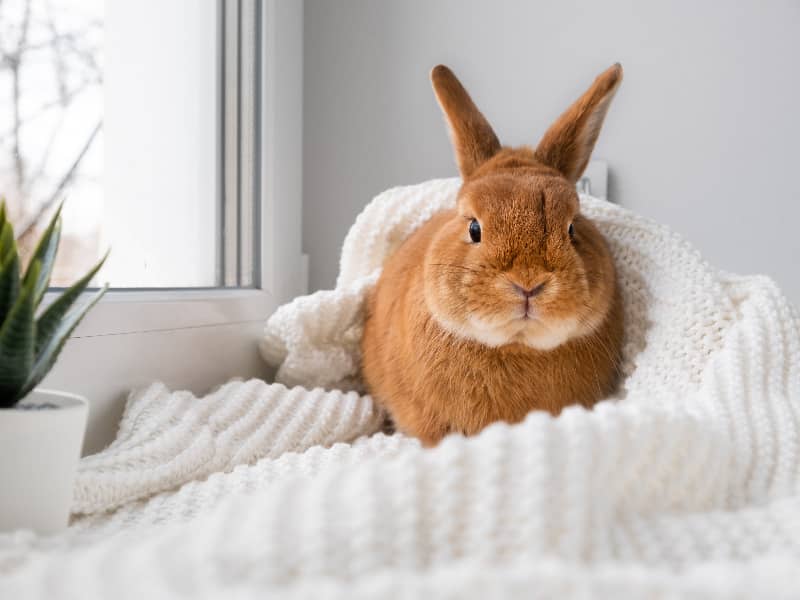
Are rabbits allowed to eat clover?
We all know the picture: a fluffy, white rabbit helping himself to his fill of clover. But it also begs the question: are rabbits allowed to eat clover? Before we delve into the depths of rabbit nutrition and health, let's first better understand clover.
Understanding clover: More than just a symbol of luck
Clover is a widespread plant species found in many parts of the world. It is known for its three-leaf structure, although we all look for the rare four-leaf specimens, which are said to bring good luck. Clover is a source of food not only for humans but also for many species of animals.
But is it also healthy for our furry friends, the rabbits?
The diet of rabbits
Rabbits are herbivores that feed mainly on grass and hay. They need fiber to keep their digestive tract healthy. But they also need other nutrients like vitamins and minerals, which they get from various sources, like vegetables and sometimes fruit.
As much as they love their vegetable and fruit snacks, the bulk of their diet should still be hay or grass.
Clover in rabbit diet: yes or no?
So, where now fits clover in the diet of our fluffy friends? There are a few things that we should pay attention.
Clover contains a protein called phytoestrogen, which in large amounts can cause hormonal imbalances in rabbits. In addition, clover has a high content of calcium and phosphorus, which can lead to urinary problems if consumed in large quantities.
Nevertheless, clover is not completely prohibited.
In moderation and as part of a balanced diet, clover can be an acceptable food source. It is always important to maintain variety and make sure your rabbit is eating other foods as well. Clover should only be a small part of the diet.
Another point is the freshness of the clover. It should always be fresh and free of pesticides or other chemicals to ensure the health of your rabbit.
It is also important to note that not all rabbits tolerate clover well. Some may even be allergic to it. Therefore, care should be taken when introducing clover into your rabbit's diet. Carefully observe his behavior and bowel movements to make sure he tolerates clover well.
Are dwarf rabbits allowed to eat clover?
Now you may be wondering if this information also applies to dwarf rabbits. Dwarf rabbits are a smaller subspecies of rabbits and they are very popular as pets.
In fact, the above information also applies to dwarf rabbits. They have the same nutritional needs and requirements as their larger relatives. However, due to their smaller size, the amounts of food they eat should be adjusted.
So dwarf rabbits can also eat clover, but in smaller quantities than larger rabbits.
Again, the same caution applies: always make sure the clover is fresh and free of chemicals, and carefully monitor your pygmy rabbit's reaction to make sure it tolerates the clover well.
So clover in a rabbit's diet is not a simple yes or no. It requires balance and vigilance on your part as the keeper.
What if your rabbit does not tolerate clover?
You may be wondering what happens if your rabbit doesn't tolerate clover well. Not all rabbits are the same, and just like humans, they can have different reactions to certain foods. Some rabbits can consume clover in small amounts without problems, while others may have negative reactions.
Symptoms of intolerance or allergy may include diarrhea, flatulence, or general malaise. If you notice that your rabbit shows such symptoms after eating clover, you should immediately remove the clover from his diet and consult a veterinarian.
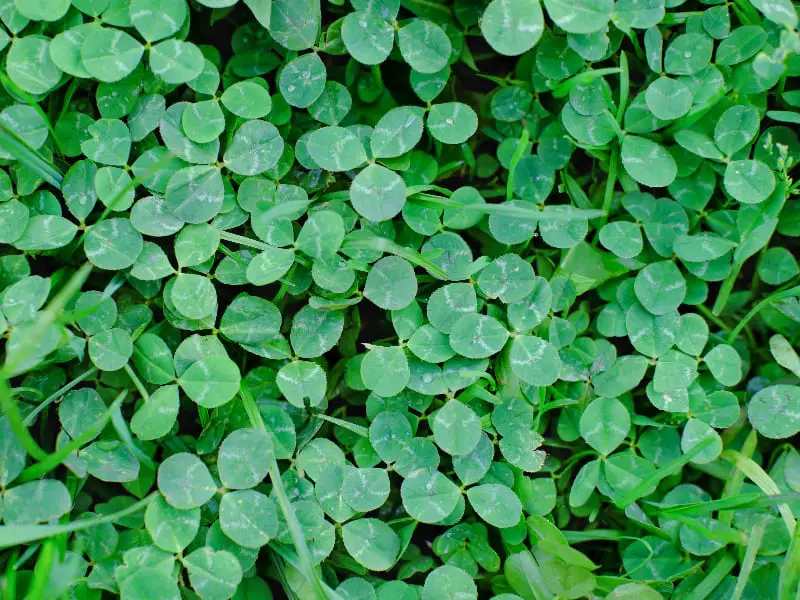
Are certain types of clover healthier than others?
There are many different types of clover, and some may be more suitable for rabbits than others. White clover and red clover are two common types that you can probably find in your garden or in a meadow.
Red clover tends to contain more phytoestrogens compared to white clover. Although both are acceptable in moderation, white clover may be a better option due to its lower phytoestrogen content. However, it is important to be careful that your rabbit does not eat too much of it.
How to introduce clover into the diet of a rabbit?
If you plan to introduce clover into your rabbit's diet, you should do so gradually. Start with small amounts and observe how your rabbit reacts. If it doesn't show any negative reactions, you can gradually increase the amount. But remember, clover should only be a small part of the total diet.
Rabbit and clover
In summary, clover is not inherently harmful to rabbits as long as it is fed in moderation and considered part of a balanced diet. As with all aspects of rabbit care, the key is to find a balance.
Although clover poses some health risks when consumed in large quantities, it can also be a source of important nutrients that can contribute to your rabbit's health and well-being.
Be sure to always provide fresh, chemical-free clover and watch your rabbit carefully to make sure it is tolerating the clover well.
With proper care and nutrition, your rabbit can live a long, healthy and happy life. And who knows, maybe he'll even stumble across a four-leaf clover and bring you some luck!
Beware of false clover: oxalis or wood sorrel
There is one plant that looks very similar to clover and is often confused with it: Oxalis, also known as wood sorrel. Oxalis has similar three-part leaves to clover, but its leaves are heart-shaped instead of oval and it often has bright, showy flowers.
Although oxalis is edible for humans and has a pleasant sour taste, it is not safe for rabbits. It contains oxalic acid, a substance that can be toxic in high amounts and cause kidney problems.
So if you are gathering clover for your rabbit, make sure it is really clover and not Oxalis. If unsure, it is best to avoid the plant and choose safe, known forage plants instead.
Other suitable green fodder for rabbits
There are many other types of greens that work well for rabbits if you want to add variety to their diet or if clover is not well tolerated. These include dandelion, parsley, basil, carrot greens, fennel and more.
Each of these greens brings its own health benefits and can help keep your rabbit's diet balanced and interesting. As always, it is important to introduce new foods gradually and carefully monitor your rabbit's reaction.
Nutrition myths in rabbits
When it comes to rabbit nutrition, there are many myths and misconceptions. One of them is that rabbits should eat mainly carrots. Although rabbits can eat carrots and often like them, they should only be fed in small amounts because they are high in sugar.
Another myth is that rabbits should eat grains and grain products such as bread or oatmeal. In reality, these foods can cause health problems and should be avoided.
It is important to be well informed and use trusted sources to make sure you are feeding your rabbit properly. If you ever have doubts, don't hesitate to ask a veterinarian or rabbit expert for advice.
Conclusion: Are rabbits allowed to eat clover?
In summary, clover is acceptable as part of a rabbit's diet, but it should be fed in moderation. While clover contains nutrients that can be beneficial to rabbits, it also contains substances that can cause health problems in high amounts. Therefore, it is important to control the amount of clover your rabbit eats and make sure it is eating other greens as well.
Furthermore, you should always make sure that the clover you feed your rabbit is fresh and free of chemicals. Any new food should be introduced gradually and you should monitor your rabbit carefully to ensure that it tolerates the new food well.
Although rabbit nutrition may sometimes seem complex, a balanced diet and careful observation are key to their health and well-being. With proper care and nutrition, your rabbit can live a long, healthy and happy life.
Author

-
Garden animal - A life with nature
Welcome to my animal blog! My name is Dirk and I am happy to take you on my journey through the fascinating world of animals and gardening.
Born 54 years ago, I have had an insatiable curiosity for the animal world around me since childhood. Although I have moved professionally in other industries, my true passion has always been animals and nature. It is remarkable how a small garden has become such an important part of my life.
Many of my fondest memories are associated with the animals that share our home. Whether it's the curious squirrels that scurry across the trees in the morning, the colorful variety of birds that visit our feeders, or the busy bees and butterflies that pollinate our flowers, every moment with them is invaluable to me.
This blog is my contribution to share my experiences, discoveries and insights with like-minded people. Here I will share stories of unforgettable encounters with animals, give tips on gardening and creating wildlife-friendly habitats, and take you on my journeys through nature.
Thank you so much for being here!
Cordial,
Dirk aka garden animal
Last posts
- 27. February 2024PetsVeganes Hundefutter – Grün und Gesund?
- 18. January 2024ChickensOregano für Hühner
- November 27, 2023HamsterDiurnal hamsters
- November 24, 2023HamsterHamster hammock

